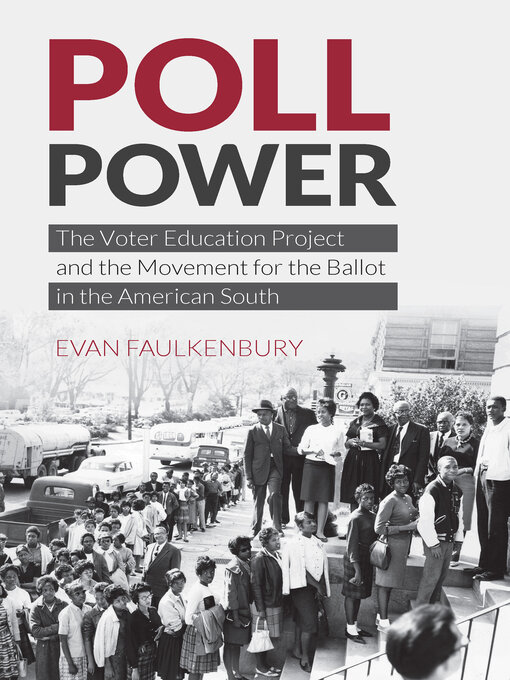- All Magazines
- Popular Magazines: Always Available
- Cooking and Food Magazines
- Craft Magazines
- News and Politics
- See all
-
Description
-
Details
-
Reviews
Though local power had long existed in the hundreds of southern towns and cities that saw organized civil rights action, the VEP was vital to converting that power into political motion. Evan Faulkenbury offers a much-needed explanation of how philanthropic foundations, outside funding, and tax policy shaped the southern black freedom movement.

Kindle Book
- ISBN: 9781469651323
- Release date: May 13, 2019
OverDrive Read
- ISBN: 9781469651330
- Release date: May 13, 2019
EPUB ebook
- ISBN: 9781469651330
- File size: 6596 KB
- Release date: May 13, 2019

Loading
Though local power had long existed in the hundreds of southern towns and cities that saw organized civil rights action, the VEP was vital to converting that power into political motion. Evan Faulkenbury offers a much-needed explanation of how philanthropic foundations, outside funding, and tax policy shaped the southern black freedom movement.

-
Details
Publisher:
The University of North Carolina Press
Kindle Book
ISBN: 9781469651323
Release date: May 13, 2019
OverDrive Read
ISBN: 9781469651330
Release date: May 13, 2019
EPUB ebook
ISBN: 9781469651330
File size: 6596 KB
Release date: May 13, 2019
-
Creators
- Evan Faulkenbury - Author
-
Formats
-
Languages
English
-
Reviews

Loading
Why is availability limited?
×Availability can change throughout the month based on the library's budget. You can still place a hold on the title, and your hold will be automatically filled as soon as the title is available again.
The Kindle Book format for this title is not supported on:
×- - Kindle 1
- - Kindle 2
- - Kindle 4
- - Kindle 5
- - Kindle 7
- - Kindle DX
- - Kindle Keyboard
- - Kindle Paperwhite
- - Kindle Touch
- - Kindle Voyage
Read-along ebook
×The OverDrive Read format of this ebook has professional narration that plays while you read in your browser. Learn more here.
